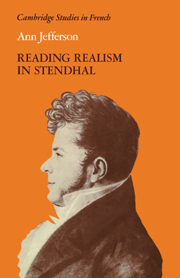Summary
Until very recently realism has appeared as a rather tedious topic on the critical agenda, and there has been little in either contemporary literature or critical thinking to enhance or enliven a view of literature as ‘the objective representation of contemporary social reality’ (to use Rene Wellek's neat definition of the term). The hatred of realism which Flaubert claimed as the inspiration of his own writing has continued to flourish in the fiction of the twentieth century, from Gide's self-conscious questionings of the relations between life and art in Les Faux-Monnayeurs to the nouveau roman's promotion of the adventure of writing at the expense of the writing of adventures.
Support for this shift of emphasis away from objective representations has come from a variety of critical camps. The history of European fiction has been recast in order to downgrade the great tradition of nineteenth-century realism, and to make way for a rehabilitation of fiction in its largely playful and self-conscious guise; this new tradition begins with Don Quixote, proceeds via the eighteenth century (with Sterne, Fielding and Diderot), goes into an eclipse in the nineteenth-century age of realism, and is finally revived and belatedly recognised in the twentieth century with Virginia Woolf, Joyce, Gide, Proust and Nabokov, etc., etc., etc. This, at least, is the story told in Robert Alter's prestigious and persuasive Partial Magic. The only fiction that critics find critically interesting is metafiction (to take the title of Patricia Waugh's account of the phenomenon), fiction ‘;which self-consciously and systematically draws attention to its status as an artefact in order to pose questions about the relationship between truth and reality’.
- Type
- Chapter
- Information
- Reading Realism in Stendhal , pp. xi - xviPublisher: Cambridge University PressPrint publication year: 1988

